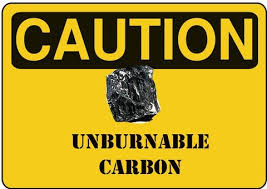
Insurers Warned Climate Change Affects “Viability of Your Business Model”
Slowly but surely the world’s banks are waking up to the dangers of climate change and the idea that carrying on investing in fossil fuels might be a risky and reckless idea.
Read the latest insights and analysis from the experts at Oil Change International.

Slowly but surely the world’s banks are waking up to the dangers of climate change and the idea that carrying on investing in fossil fuels might be a risky and reckless idea.
Early this morning, the 28 EU leaders agreed in principle to set a landmark deal to reduce CO2 emissions by 40 per cent from 1990 levels by 2030.

The oil industry and its allies are used to dismissing those who are warning about climate change as a bunch of lentil-eating, sandal-wearing commies. But over the last few months we have seen a growing number of authoritative voices calling for fossil fuel disinvestment, with a growing number of institutional investors actually saying they will disinvest from fossil fuels.

A proposal to label the dirty tar sands as more polluting than conventional oil has been spectacularly abandoned by the European Commission after a four year lobbying campaign by the Canadians.

The actor Leonardo DiCaprio was one of a number of people to address the United Nations Climate Summit yesterday, urging them to take action to address "the greatest challenge of our existence on this planet."

Yesterday was day two of the dynamic and energised protests against climate change in New York which saw several thousand activists take part in “Flood Wall Street.”

400,000 in New York. 40,000 in London. 30,000 in Melborne. 25,000 in Paris. Thousands others in some 2,700 events across the globe in over 150 countries.

On Sunday, hundreds of thousands of people are expected to take part in what the organisers are promising to be the largest climate march ever in New York.
Next week, on the 23 September, the United Nations will hold its most important climate summit for years in New York, which will attended by some 125 heads of state.

A new scientific study argues that the State Department has seriously underestimated the climate emissions from Keystone XL. The study concludes that the pipeline could produce four times more greenhouse gases than the State Department calculated.